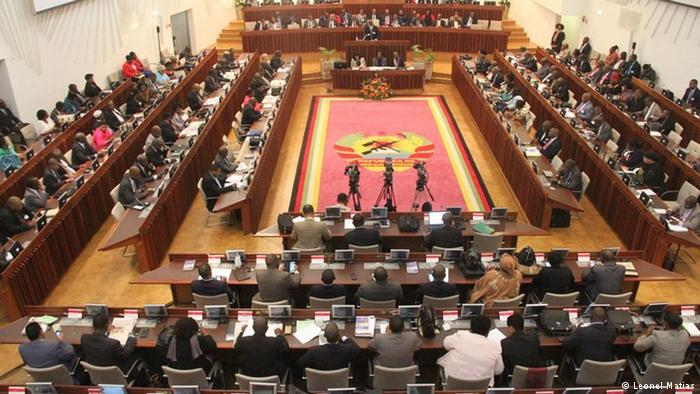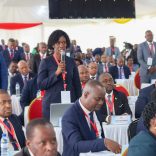Mozambique: Renamo calls urgent conference of former combatants - Watch
Assembly likely to scrap “prior objection” requirement- AIM Report

in file CoM
The Mozambican parliament, the Assembly of the Republic, is likely to abolish, on constitutional grounds, the main obstacle to successful appeals against electoral fraud and irregularities.
The current legislation states that an appeal cannot be considered if there has not been a “prior objection” at the lowest possible body, usually the polling station. Thus, if a party representative detects an irregularity, he must first report it at the polling station – only then can the party complain to district courts, to the National Elections Commission (CNE), or to the Constitutional Council, the highest body in matters of constitutional and electoral law.
But repeatedly polling station staff have refused to accept complaints from party monitors, even though they are legally obliged to do so. The result is that, when the complaint ends up in a court, or at the Constitutional Council, it is thrown out, since there is no evidence of any “prior objection”.
This reached a scandalous level during the municipal elections held on 10 October last year. Almost all the complaints, even one from the ruling Frelimo Party, were rejected on the grounds there was no sign of an objection made at a polling station.
Even where fraud was blatant – for example, in the cases of the municipalities of Moatize, Alto Molocue, and Monapo – the Constitutional Council would not budge from its position that nothing could be done without proof of “prior objection”.
But speaking in the Assembly on Thursday, the chairperson of its Legal and Constitutional Affairs Commission, Edson Macuacua, said the relevant clause in the electoral law should be reformulated to allow protests regardless of any “prior objection” at the polling stations.
Cited in Friday’s issue of the independent daily “O Pais”, Macuacua argued that it is unconstitutional to restrict citizens’ rights to approach the courts. In fact, the Constitutional Council had, in unrelated matters, already declared that it was a violation of the constitution to oblige citizens to practice some other act before they had the right to appeal to the courts. He pointed out that in other areas, such as the Labour Law, the demand for “prior objection” has already been abolished.
Since Macuacua’s commission is one of the most powerful of the Assembly’s working commissions, and since Macuacua himself is a senior figure in the Frelimo parliamentary group, which has an absolute majority in the Assembly, it is more than likely that the principle of “prior objection” will now disappear from the electoral legislation.
Macuacua was speaking during the first reading of government bills on the election and functioning of the provincial assemblies.
Another significant change proposed is to end the anomaly whereby a candidate who resigns his office is unable to stand in the subsequent elections. This became a matter of bitter contention last year when Venancio Mondlane was denied the opportunity to run as the candidate of the former rebel movement Renamo for the position of Mayor of Maputo.
Mondlane was disqualified because he had been a member of the Maputo municipal assembly, elected in 2013, but had resigned the following year. In fact, he had no choice but to resign because that year he was elected a member of parliament, and nobody can be a parliamentary deputy and a member of a municipal assembly at the same time.
Silverio Ronguane, the candidate of the Mozambique Democratic Movement (MDM) for Mayor of Matola, was in exactly the same situation, and he too was eventually disqualified.
As jurists commented at the time, it made no sense to penalise somebody just because he had been elected to parliament. Neither Mondlane nor Ronguane had resigned in disgrace from the municipal assembly: they had left to take up a seat in a higher Assembly.
So, on the recommendation of Macuacua’s commission, it is likely that when the amended bill comes up for its final reading, the penalty for resigning will disappear, when the resignation is an inevitable result of election to a different position.
The new law will, however, retain the ban on elected officials changing their political party during their term of office. Last year the mayor of Quelimane, Manuel de Araujo, abandoned the MDM, the party to which he owed his career, and jumped ship to join Renamo. This cost Araujo his position – but since the Administrative Tribunal only confirmed his loss of office a couple of weeks before his term ended, it made no practical difference.












Leave a Reply
Be the First to Comment!
You must be logged in to post a comment.
You must be logged in to post a comment.